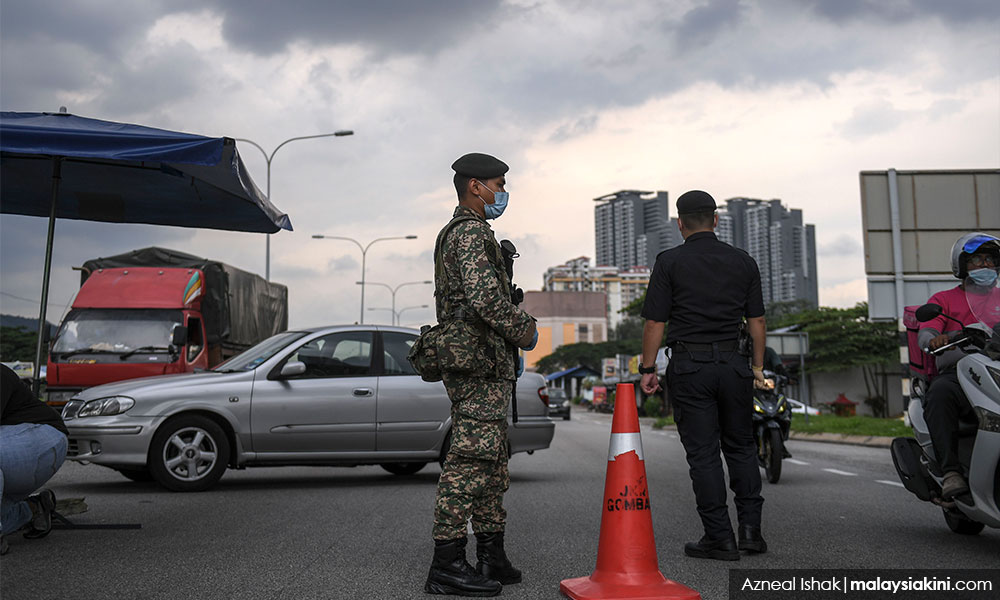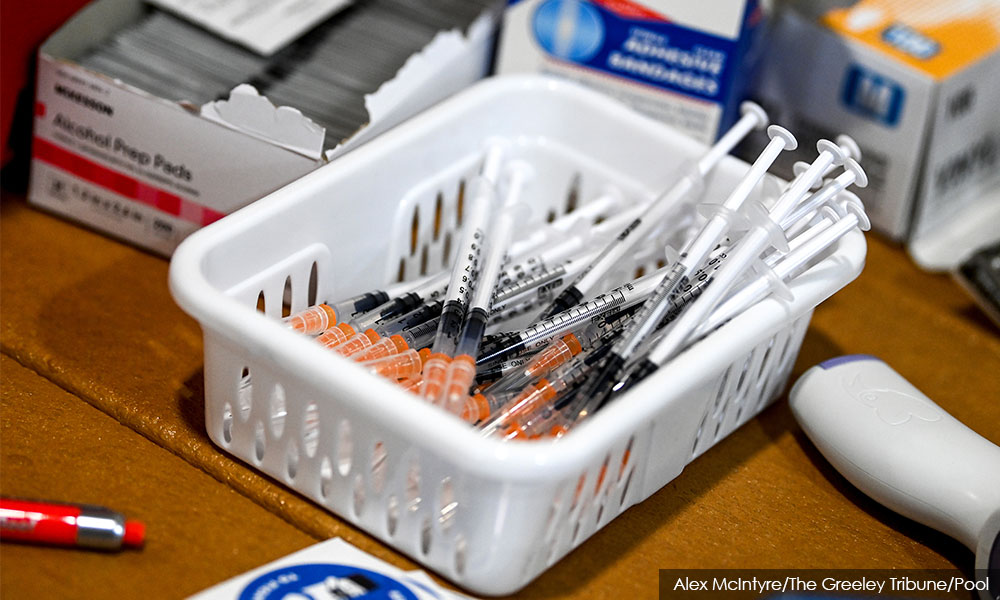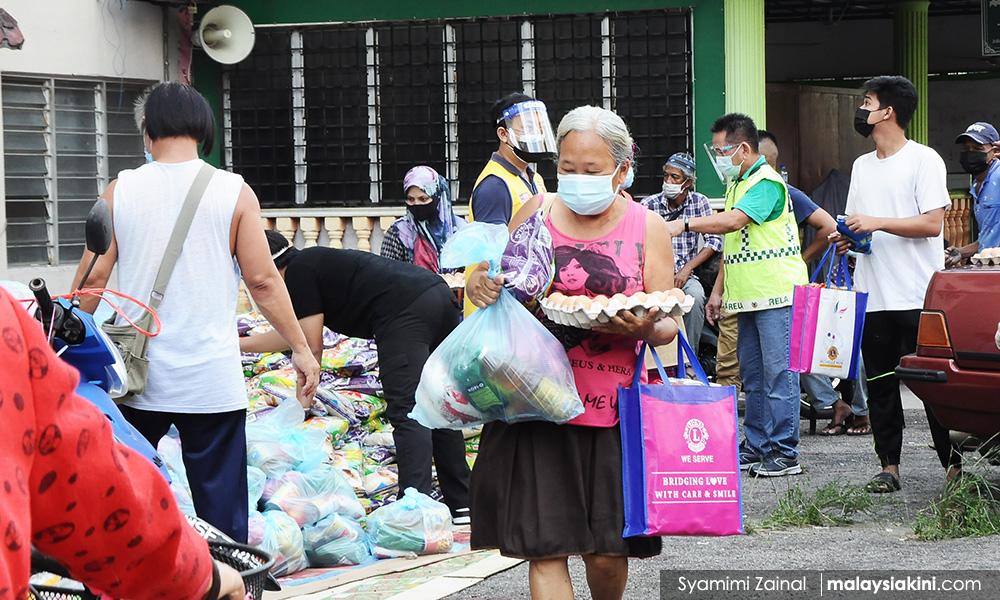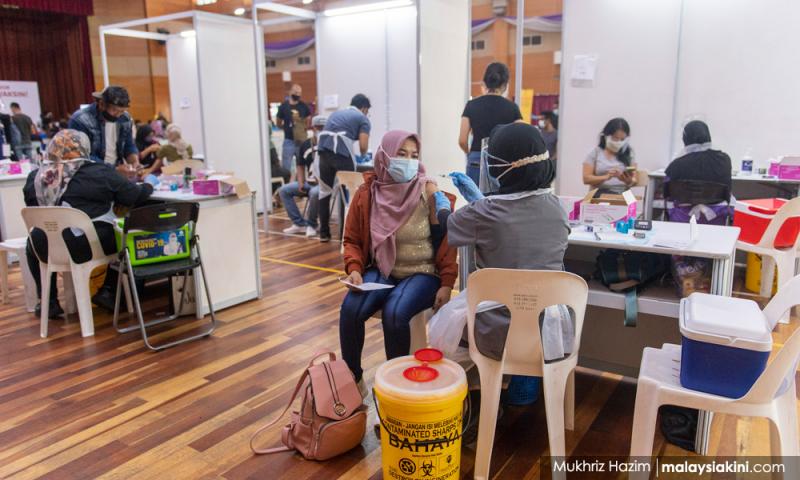LETTER | Battling Covid-19: Challenges, burden and response
LETTER | The Covid-19 pandemic was first identified in December 2019 in Wuhan, China. The virus has killed about 11,000 Malaysians and four million people globally.
What are the progression, challenges, and response in Malaysia? This issue can be analysed from the sociological, technological, economic, and political aspects.
Sociological
We were so proud of our movement control order (MCO) total lockdown. The MCO 1.0 was imposed from March 18, 2020 to May 3, 2020. The country’s borders remained closed and only travellers with approval from relevant agencies were allowed to enter the country.
The actions taken by the ruling government were well received where the rakyat and the business communities adhered strictly to the standard operating procedures (SOPs), and where only essential services were allowed to operate. They were effective and were praised by our neighbouring countries, including the World Health Organisation.
However, the feeling of overconfidence and complacency began to set in among the communities and the policy-makers. We thought we were free and safe and all aspects could be managed. But the SOPs were not really followed, enforcement was lacking, double standards were apparent, and the indifferent attitude of the rakyat such as crossing state borders to 'balik kampung'.

A study by Arina Anis Azlan et al entitled 'Public knowledge, attitude and practices towards Covid-19: A cross-sectional study in Malaysia' stated that “the knowledge, attitudes, and practices people hold towards the diseases play an integral role in determining a society’s readiness to accept behavioural changes from health authorities".
The effectiveness of all the mitigation measures is highly dependent on the cooperation and compliance of all members of society. But, sadly, we have failed in this area.
As a result, Malaysia's Covid-19 cases per capita have surpassed many countries in Asia.
Technological
The government’s weaknesses in managing the pandemic have begun to show: slow to decide the types of vaccines needed; and issues of pricing, volume, deliveries, and vaccine storage. The wait-and-see approach had created uncertainties in the government and the people.

The purchase of vaccines is a profitable business. Soon, the integrity of the procurement started to be questioned. Transparency is critical in an emergency. Any compromise in the rules and regulations can lead to abuse of the public procurement process. Direct negotiations can result in higher risk of conflict of interests and failure to deliver vital medical supplies.
The vaccine delivery system was dysfunctional; there was a lack of coordination coupled with ineffective implementation. It was not coordinated. Parliament was closed due to the emergency imposed in the country. There was no thorough check on the vaccination costs and no debates in Parliament on the stimulus package that amounted to RM530 billion.
Economic
The rakyat was badly affected economically. The country lost RM2.4 billion daily throughout the implementation of MCO 1.0. The people started to lose their livelihoods due to downsizing and laying-off of employees. SMEs could not operate as they were classified as non-essential: the result is most SMEs now have closed and have wound up, are closing and are winding up; or being restructured. Trade associations were confused about government directives and over unclear SOPs.

Now, despite the series of MCOs, the rakyat could not care less and did not follow SOPs due to the loss of their livelihoods and the economic downturn. Many people have no money even to buy food. Worst still, at the end of May, the government announced ‘total lockdown’.
This was accompanied by many initiatives - Pemudah, Pemulih, I-sinar etc. But these initiatives are not sustainable in the long term. The strategies did not work as companies and rakyat are still suffering. This has hurt our economy.
The government must find ways to restore the economy and curb the Covid-19 epidemic.
Political
Besides the health crisis, we are also facing leadership, integrity, and corruption crises. Politics is constantly and persistently on our radar in our country. Despite the call to focus on Covid-19, the political parties and politicians are still engaged in a tug-a-war on who is the better leader for the country.
We have been in a state of political turmoil for months. The pandemic has shed light on the inexperience, uncaring attitude, and egotism of some of the politicians holding the fort.
Government's efforts
Malaysians expressed relief over the government’s latest decision to relax SOPs. The question is, how do we combat the Delta variant?
In the meantime, we hope that when the pandemic is finally brought under control, the government can quickly focus on reviving economic activities. The people, too, have to play their part in adhering to normal SOPs. Government-people collaboration will help bring our country back on track.
AKHBAR SATAR is president of the Malaysian Association of Certified Fraud Examiners.
The views expressed here are those of the author/contributor and do not necessarily represent the views of Malaysiakini.
RM12.50 / month
- Unlimited access to award-winning journalism
- Comment and share your opinions on all our articles
- Gift interesting stories to your friends
- Tax deductable
